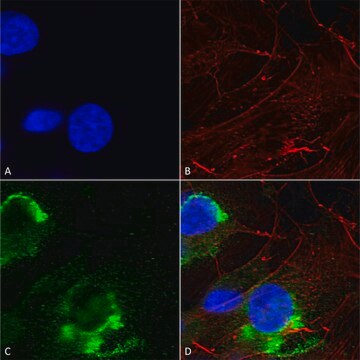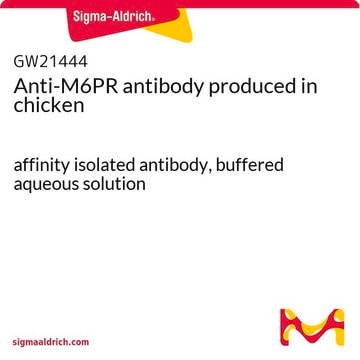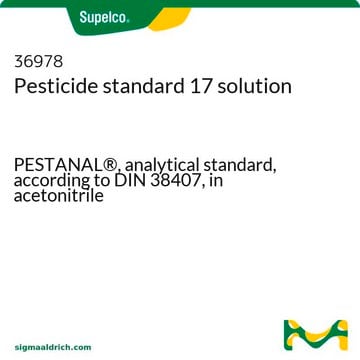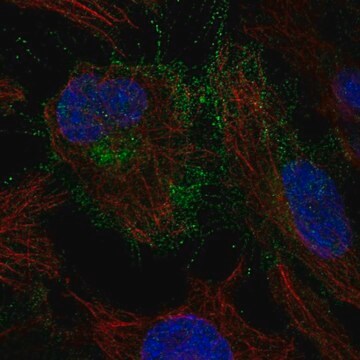MABN40
Anti-LRRK2 Antibody, clone N138/6
clone N138/6, from mouse
Synonym(s):
leucine-rich repeat kinase 2, DARDARIN, augmented in rheumatoid arthritis 17, Parkinson disease (autosomal dominant) 8, Dardarin
About This Item
Recommended Products
biological source
mouse
Quality Level
antibody form
purified immunoglobulin
antibody product type
primary antibodies
clone
N138/6, monoclonal
species reactivity
human
species reactivity (predicted by homology)
mouse (based on 100% sequence homology)
technique(s)
immunohistochemistry: suitable
western blot: suitable
isotype
IgG1κ
NCBI accession no.
UniProt accession no.
shipped in
wet ice
target post-translational modification
unmodified
Gene Information
human ... LRRK2(120892)
General description
Specificity
Immunogen
Application
Quality
Immunohistochemistry Analysis: 1:300 dilution of this antibody detected LRRK2 on 10 µg of human placenta and Parkinson′s diseased vascular brain tissue.
Target description
Physical form
Analysis Note
Human placenta and Parkinson′s diseased vascular brain tissue
Other Notes
Not finding the right product?
Try our Product Selector Tool.
Storage Class Code
12 - Non Combustible Liquids
WGK
WGK 1
Flash Point(F)
Not applicable
Flash Point(C)
Not applicable
Certificates of Analysis (COA)
Search for Certificates of Analysis (COA) by entering the products Lot/Batch Number. Lot and Batch Numbers can be found on a product’s label following the words ‘Lot’ or ‘Batch’.
Already Own This Product?
Find documentation for the products that you have recently purchased in the Document Library.
Our team of scientists has experience in all areas of research including Life Science, Material Science, Chemical Synthesis, Chromatography, Analytical and many others.
Contact Technical Service







